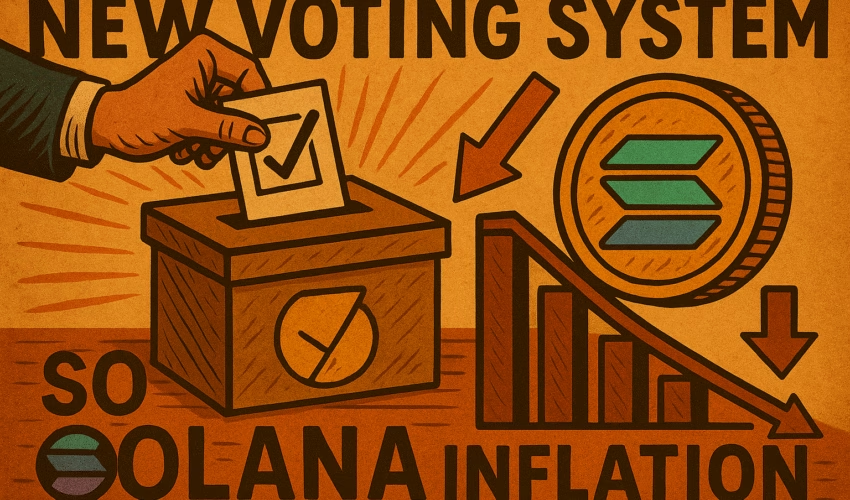New MESA Framework Aims to Improve Consensus on SOL Emission Policy
Galaxy Research, the analytics arm of digital asset firm Galaxy, has introduced a new proposal to reform how Solana validators vote on inflation policy, aiming to resolve prior stalemates over token emission adjustments.
Announced on April 17, the proposed system—called Multiple Election Stake-Weight Aggregation (MESA)—would replace Solana’s current binary yes/no voting model with a market-driven, weighted average mechanism that allows validators to vote across multiple inflation rate options.
“Instead of cycling through inflation reduction proposals until one passes, what if validators could allocate their votes to one or many changes?” Galaxy Research wrote.
We just introduced a new Solana proposal called Multiple Election Stake-Weight Aggregation (MESA) to reduce SOL inflation: a more market-based approach to agreeing on the rate of future SOL emissions.https://t.co/mcVdkRiM8y
— Galaxy Research (@glxyresearch) April 17, 2025
Background: Frustration With SIMD-228 Voting Outcome
The proposal follows the failure of SIMD-228, a previous governance initiative that aimed to transition Solana’s fixed inflation schedule to a dynamic model based on market feedback. While the community largely agreed that SOL inflation should be reduced, the binary voting system could not yield consensus on the specific parameters for change.
Under Solana’s current structure, inflation begins at 8% per year, decreasing 15% annually until it reaches a terminal rate of 1.5%. As of now, Solana’s inflation rate stands at approximately 4.6%, with 64.7% of the total supply (387 million SOL) currently staked, according to Solana Compass.
How MESA Works: Voting by Spectrum, Not Binary
Galaxy’s MESA model allows validators to vote on a range of inflation reduction options, with the weighted average of all “yes” votes determining the final inflation curve—if quorum is reached.
For example:
-
5% vote to maintain the current rate (15% reduction),
-
50% vote for a 30% reduction,
-
45% vote for a 33% reduction.
The final deflation rate would be set at 30.6%, calculated as a stake-weighted average.
This model maintains the fixed terminal rate of 1.5% but adds flexibility to adjust the curve dynamically, while preserving predictability for stakeholders.
“Galaxy Research seeks to suggest a genuinely alternative process to achieving what we believe is the community’s broad goal,” the firm noted, clarifying it does not advocate for any particular inflation rate.
Implications for Solana Governance
By introducing non-binary voting mechanics, MESA could pave the way for more nuanced governance outcomes that reflect a wider range of stakeholder preferences, potentially improving participation and legitimacy.
Galaxy’s involvement is notable as the firm’s affiliate, Galaxy Strategic Opportunities, operates staking and validation services for the Solana network, positioning it as both participant and contributor to protocol-level improvements.
Final Thoughts: Toward Market-Driven Emission Policy
Solana’s inflation dynamics have long been a subject of debate, especially as the network matures and seeks to balance validator incentives with long-term supply stability.
Galaxy’s proposal offers a flexible yet structured solution, introducing spectrum-based governance that could serve as a model for other Layer-1 blockchains grappling with similar emission policy challenges.
As the community reviews MESA, the question remains whether validators and stakeholders will embrace a system that demands more thoughtful input—but offers more democratic results.












